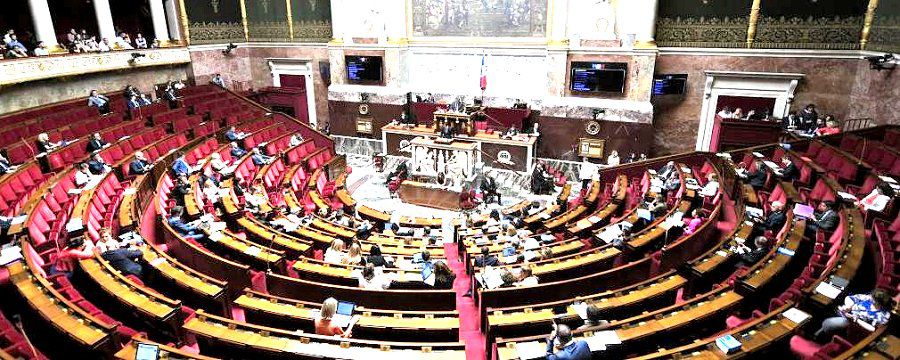RATIFICATION OF CETA OR THE CONTROVERSE AGREEMENT |
|
| The draft law on the ratification of Ceta is voted today in France. Since its provisional application in 2017, this free trade agreement has focused criticism. It has just been ratified by parliament. Due to the protests of the opposition, the vote on the draft law of ratification of Ceta has been rejected by the deputies of the National Assembly and was the subject of a public ballot, Tuesday, July 23. The points of tension concern in particular the health, agricultural and environmental risks. Free Trade Agreement Between Canada and the European Union This is a free trade agreement between Canada and the European Union. Negotiated since 2009, the text was signed in 2016 by Canadian Prime Minister Justin Trudeau and European Council President Donald Tusk. The Ceta (for Comprehensive Economic and Trade Agreement) is applied temporarily since 2017, only on its commercial aspect. Its full implementation requires the ratification of all States.
Why Canada? Canada is a major trading partner of the EU at the 12th rank of the EU's trade relations, while the EU is Canada's second largest trading partner after the United States. The volume of goods exchanges between the two partners amounts to nearly 60 billion euros per year. The EU mainly exports machinery, transport equipment and chemicals to Canada. Commercial services accounted for almost 26 billion euros (in 2012), mainly transport, travel and insurance services. In addition, Canada and the EU have a close investment relationship, with Canada being the fourth largest foreign investor in the EU with more than 142 billion euros (in 2012) while the EU is the second largest investor in Canada with nearly 260 billion euros (in 2012). Faced with a growing protectionism? "In these times of uncertainty, with increasing protectionism around the world, Ceta underlines our strong commitment to sustainable trade," said EU Trade Commissioner Cecilia Malmström after the vote on the agreement to the European Parliament. "Nothing in this agreement" will affect "the safety of the food we eat or the products we buy, nor will it lead to the privatization of public services," she argued. The main objective is to lower trade barriers. Specifically, tariffs will be removed on 98% of goods traded. The agreement also plans to expand certain services to competition and to strengthen regulatory cooperation between the two zones. Another important point is the recognition by Canada of 145 protected geographical indications (PDIs), 42 of which are French. Mostly cheeses. CETA critics Since its implementation, Ceta has focused criticism. Yesterday, Nicolas Hulot did not he asked the deputies not to ratify an agreement which would reinforce "one of the worst students of the G20" in environmental matter? Doubts about a "lowering of sanitary standards" were also expressed. Unlike the European Union, Canada allows the breeding of beef fed with antibiotics or animal meal. In early July, a few days before the vote, the debate crystallized on animal meal, banned in Europe after they caused the crisis of "mad cow" or bovine spongiform encephalopathy. A hole in the legislation actually allows Canadian ranchers to feed their oxen with flours made from what remains of their fellow slaughtered animals - the blood, the hair, the fat - and at the slaughterhouses. send to the European soil without the consumer being informed. The Canadian authorities also acknowledged on July 19 to Agra Presse that, "despite a prohibition in principle of ruminant feed based on ruminant flours, Canadian legislation allows the use of certain proteins, such as blood meal and gelatin ". Finally, the arbitration tribunals provided for in the agreement remain highly controversial. These allow a private company to attack a state, if it feels aggrieved by regulations too vigorous. For the opponents of Ceta this agreement is anti-democratic, too favorable to the multinationals, dangerous for the European agriculture and light on the environment. For now, the government has tried to provide a guarantee by negotiating a "climate veto". Jean-Baptiste Lemoyne, Secretary of State to the Minister of Europe, welcomes a "6.5% increase in French exports" in Canada, between 2017 and 2018. Peaks of 10% have been achieved, especially for cosmetics and pharmaceuticals. In contrast, Canada's exports to the EU fell by 3% and as much as 9% to France. In a study, the Center for Prospective Studies and International Information relativizes the economic impact of Ceta. It calculates the variations due to the treaty at 0.5% for most sectors in France. The other effects, especially on greenhouse gas emissions, are still unclear. |
|
| Britney Delsey for DayNewsWorld | |
 |
|




